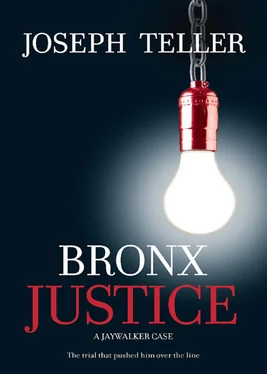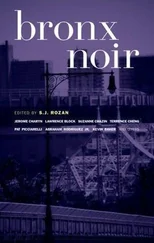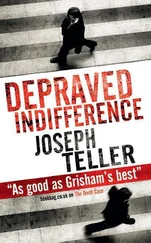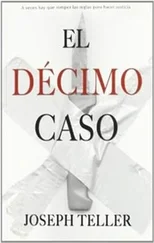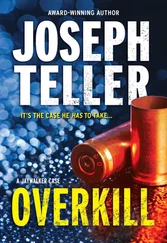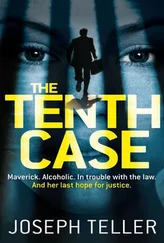1 ...7 8 9 11 12 13 ...16 Secondly, the exam by its nature includes an in-depth interview of the subject, something that law enforcement personnel are always eager to conduct. Many a suspect has been coaxed or tricked into a revealing admission during the interview, occasionally even into an outright confession.
Finally, whatever its intrinsic worth or evidentiary value, a favorable polygraph result becomes something to hang one’s hat on. A defense lawyer will leak it to a newspaper reporter; a prosecutor will cite it as a reason to recommend dismissal of a case; and a judge will refer to it in granting that dismissal.
Hypocrisy? Junk science elevated to mainstream thinking? Perhaps. But Jaywalker wasn’t going to let such philosophical considerations deter him. Jacob Pope had offered them a way out, and they were going to do their best to take advantage of it.
Over the next few days, Jaywalker asked around about polygraph operators and came up with a handful of names. The one he kept hearing was Dick Arledge, a man who taught and trained other examiners, and who’d refined the technology to the point of developing and designing his own machines. Jaywalker called his office, set up an appointment, and notified Darren of the date and time, and the fee he would have to bring. He also phoned the district attorney’s office and learned that they’d scheduled their exam for early December. That was good; it gave the defense ample time to get their own test done and evaluate the results.
Jaywalker didn’t bother telling either Pope or Detective Paulson, the polygraphist he’d chosen, that he was having Darren examined on his own. Just as Marlin had hedged his bet by opting for the private test, so was Jaywalker hedging by his silence. That way, if Darren were to pass, great; he would go into the D.A.’s test more confident than ever. And if he were to flunk, they could always pull out of the second one. “I’ve done a little checking,” he could always tell Pope. “I never knew how unreliable these things are. We’ll take our chances at trial.”
Looking back later, Jaywalker would come to realize that the week waiting for that first exam was a strange time, an interlude during which he fantasized that his role in the case was drawing to an end. In spite of everything he knew about polygraphs and their shortcomings, he gradually put that knowledge aside. Instead, he began to engage in a bit of magical thinking. He became convinced that the test would solve everything. After all, this wasn’t a case involving nuances. There was no claim of self-defense, for example, or of an innocent mistake; there were no state-of-mind issues to be debated. No, Darren was either completely innocent or he was just as completely guilty. Now a little black box with a bunch of wires attached to it was going to tell them, for once and for all.
Which made it only natural to wonder just which answer the box was going to spit out.
Jaywalker had begun by assuming Darren’s guilt. Three years of lawyering, and two before that with the DEA, had taught him to doubt everyone he encountered, whether it was on the street, across a desk or through the bars of a jail cell. They were all innocent, every last one of them. The junkie with heroin in his pocket had mistakenly put on his roommate’s pants. The shoplifter had simply been taking the leather bomber jacket to another department to see how it looked with a white scarf. The burglar was just trying to find his cousin’s apartment. The cocaine dealer had all that cash in his sock to buy a stroller for his baby’s mama. And the murderer hadn’t meant to stab anyone; he’d simply been cleaning his knife when the victim had accidentally backed into it—thirty-three times.
Learning the morning of Darren’s first court appearance that no less than five victims had identified him as their attacker, Jaywalker had drawn the obvious conclusion. They couldn’t all be wrong. Darren had to be guilty.
Since then, however, things had begun to happen. Little things. Nothing dramatic, nothing earthshaking. Darren’s unflagging insistence on his innocence; his eagerness to take a lie detector test, even after hearing it was guaranteed to reveal the truth; the claim by one of the victims that she’d seen him again in her building when his whole family insisted he hadn’t been there; the discrepancies between the victims’ descriptions and Darren; and the fact that not one of them had reported that her attacker spoke with a stutter. Not that any one of those things, standing by itself, convinced Jaywalker of Darren’s innocence. But combined, they’d gradually begun to take on an undeniable weight. Each new revelation had forced Jaywalker to rethink his initial knee-jerk reaction that Darren had to be the rapist. As the time for the polygraph exam approached, the truth was, he didn’t know what to think.
By far the most frequently asked question put to any criminal defense lawyer is “How can you represent someone you know is guilty?” Three years into practice, Jaywalker had developed his response, which he dusted off and repeated whenever asked. Phrases like “Everyone deserves someone in his corner,” “I believe in the system” and “Even society’s most despised members deserve representation” were met with approving nods or bewildered stares. But what Jaywalker was rarely called on to expound upon was the darker half of the equation. The truth was, as he’d quickly learned, that representing a guilty client brings enormous comfort. The lawyer’s job is simple and straightforward: listen to the client patiently, explain the system to him and get him a decent plea offer. If the client accepts it, the case is over. If he doesn’t, he takes his chances at trial. If that trial should somehow result in an acquittal, it would mean that Jaywalker had managed to defy the odds. If it should result in a conviction, as expected, it was because the defendant was guilty all along.
So it wasn’t the notion of representing a guilty defendant that bothered Jaywalker. It didn’t, not at all. What bothered him, what scared the life out of him, was the specter of representing an innocent defendant. Suddenly, none of the usual rules applied. To an innocent man, no plea bargain is acceptable. No amount of patient listening will placate him. No explanation of how the system works will suffice. A trial becomes inevitable, and the need to win at that trial becomes nothing less than essential. And whose responsibility is it to win? The defense lawyer’s, that’s who.
For Jaywalker, that responsibility, that need to win, was as unwelcome as it was awesome. The trial suddenly changes from an exercise in due process to a horror show. Every utterance by the prosecutor, every piece of evidence that suggests guilt, every look of disapproval from the jury box, becomes a gut-wrenching outrage. If the trial somehow ends with an acquittal, it’s no thanks to the lawyer: after all, the defendant was innocent, and the system simply worked as it was supposed to. But suppose for a moment that the trial ends with a conviction. What then? For Jaywalker, that was unthinkable; that was the stuff of nightmares.
Which was the beauty of the polygraph, the wonderful lure of the magical thinking in which he now lost himself. It was all so simple. Darren was guilty, or he was innocent. If he was innocent, Jacob Pope would do the right thing and D.O.R. the case. And now they were about to find out.
The little black box was going to tell them.
CERTIFIED
LIE DETECTION
INSTITUTE
read the sign on the door. Jaywalker rang the bell and waited, afraid he was too early. Eventually a shadow appeared beyond the frosted glass and the door swung open.
“Mr. Jaywalker?”
“Yes.”
“Come on in. I’m Gene Sandusky.”
Читать дальше
